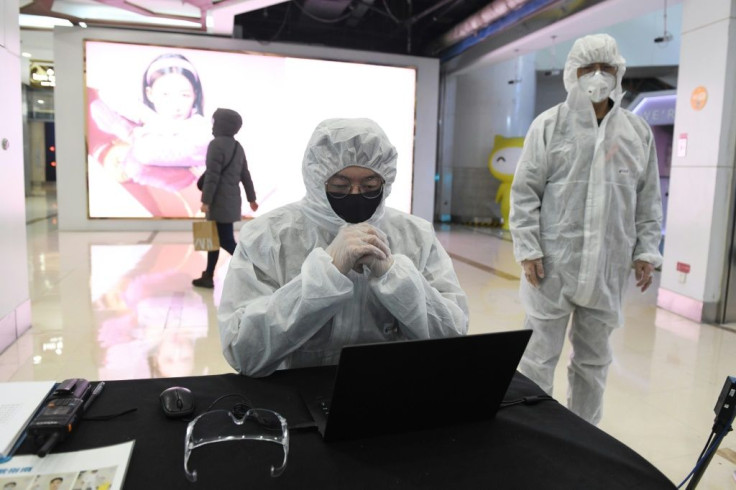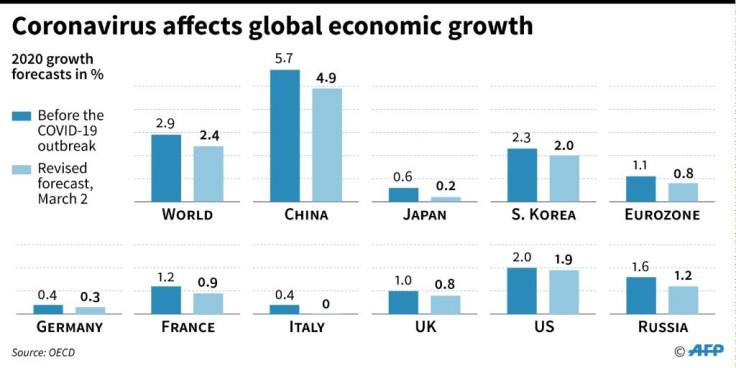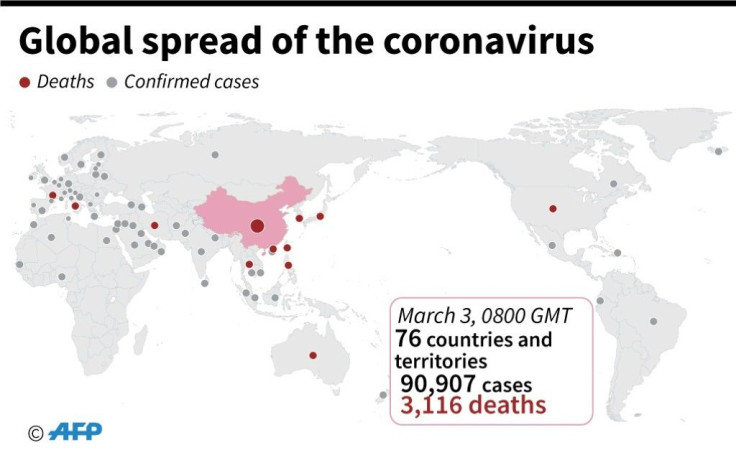G7 'Ready To Take Action' To Stem Coronavirus Risks

Top officials from the Group of Seven nations vowed Tuesday to use "all appropriate policy tools" to prevent the coronavirus crisis from damaging the global economy, but held back on unveiling specific relief measures for now.
The G7 finance ministers and central bank chiefs held an emergency conference call as concerns grew that the spreading epidemic could imperil growth and possible drive some countries into a recession.
"G7 finance ministers are ready to take actions, including fiscal measures where appropriate, to aid in the response to the virus and support the economy during this phase," the group said after the talks.
Central bankers from the world's most advanced economies -- Britain, Canada, France, Germany, Italy, Japan and the United States -- will also ensure "price stability and economic growth while maintaining the resilience of the financial system," it said.
Companies worldwide have been buffeted by actions taken by governments to stem the outbreak of coronavirus infections since they emerged in China, where entire cities have been locked down and factories shut.
Fears that the crisis will deepen sent equity markets into a tailspin last week, though indices have recovered this week on expectations that officials would take action, such as cutting interest rates or providing emergency financing.
Yet no details of potential actions were released in the G7's statement.
"This is a disappointment compared to previous hopes of an immediate and coordinated fiscal package and interest rate cuts," said Jennifer McKeown, an economist at Capital Economics in London.
Neil Wilson, chief markets analyst at Markets.com, said that despite the G7's pledge to cooperate, "we have no real coordination and no real action."

Europe's main stock markets trimmed their gains following the G7 announcement, but remained firmly higher. Wall Street was also set to open higher according to futures trading.
Alongside growing health fears, governments are scrambling to calm worries of widespread economic disruptions that saw major stock markets lose over 10 percent of their value last week.

The outbreak has now killed more than 3,100 people and infected over 90,000 as it spreads around the world.
Even before the G7's conference call, officials had been trying to reassure investors that they stand ready to cushion shocks to markets or to the wider economy.
"We stand ready to take appropriate and targeted measures, as necessary and commensurate with the underlying risks," European Central Bank chief Christine Lagarde said in a statement Tuesday.
The Bank of England will "take all necessary steps" to support the UK economy from coronavirus fallout, said governor Mark Carney ahead of the G7 talks.
The International Monetary Fund and World Bank also issued a joint statement Monday pledging to help countries deal with the fallout from the epidemic.
"We will use our available instruments to the fullest extent possible, including emergency financing, policy advice, and technical assistance," the lending institutions said.
And US Federal Reserve chairman Jerome Powell on Friday issued a statement pledging the Fed would "use our tools and act as appropriate to support the economy".
Eurozone finance ministers are also set to hold a conference call on Wednesday.
"There will be coordinated action," said French Finance Minister Bruno Le Maire.
While the outbreak has only just begun to slow factory output or empty retailers' shelves outside of China, it has already hit the transportation and tourism sectors hard, and seen companies scale back travel and cancel conventions.
The OECD warned Monday the global economy risks an outright contraction in the first quarter as it slashed its global GDP forecast by half a percentage point to 2.4 percent, the lowest rate since the 2008-09 financial crisis.
It said growth could slow to 1.5 percent if the epidemic is not brought under control in the coming months.
© Copyright AFP 2024. All rights reserved.





















